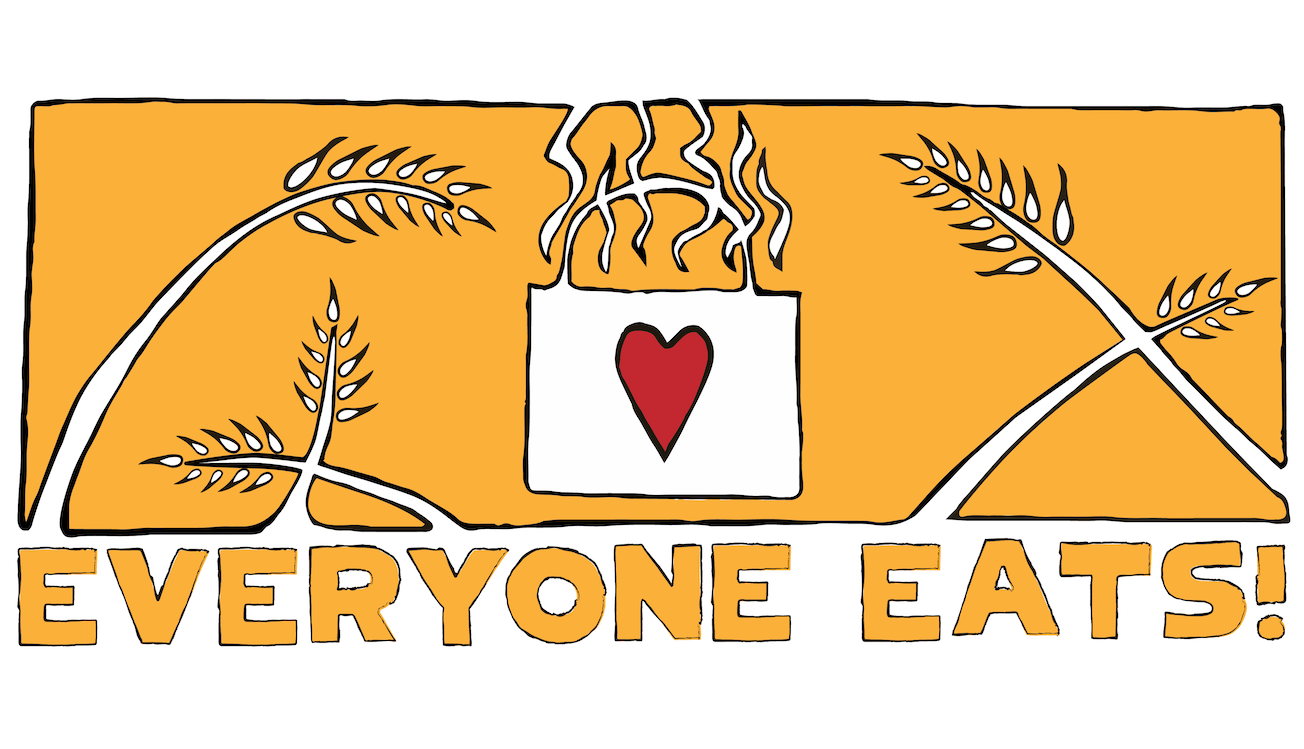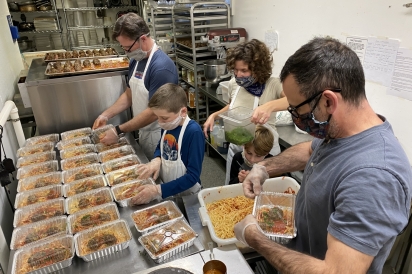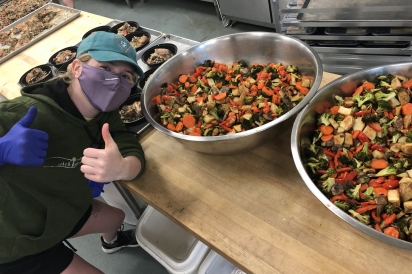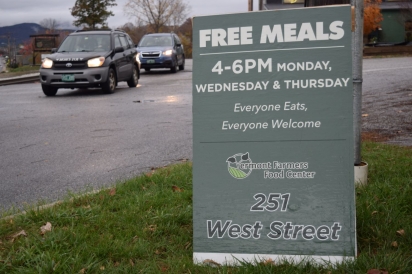Vermont Everyone Eats
Resilient communities throughout the state have come together to provide food to those in need, using available resources from restaurant entrepreneurs and local farms and producers. Benjy Adler’s ShiftMeals sparked a grassroots solution that ultimately secured $5 million in government funds and created Vermont Everyone Eats.
Benjy Adler, entrepreneur and founder of The Skinny Pancake, conceived an initiative as the pandemic took hold. His vision: solve several problems simultaneously. Put restaurant employees to work, feed those in need, and support local farms and producers. He secured start-up funding from several Vermont foundations, and ShiftMeals took off. A win-win-win. As Benjy says, “Local businesses respond to community needs.”
Benjy brought longtime food systems advocate Jean Hamilton on board to coordinate ShiftMeals. “It quickly became clear that the scale of need necessitated public funding,” Jean recalls. “Traditional emergency food systems were bottle-necked and struggling to meet demand. A couple hundred meals a week skyrocketed to more than 7,000 by mid-May. We saw the opportunity to expand the ShiftMeals (which operates in Burlington, Montpelier, Waitsfield, and Quechee) concept on a statewide level.” Other corporations including Black River Produce, Reinhart Food Service, Cabot Cheese, and the Vermont Foodbank stepped up to provide assistance.
In late June, Jean and a team of collaborators from around the state including Vermont Sustainable Jobs Fund, Southeastern Vermont Community Alliance (SEVCA), and the Downtown Brattleboro Alliance created a proposal and testified before the virtual statehouse. The proposal drew on the experience of ShiftMeals as well as other similar projects that had been organized during Covid including Chester Helping Hands and Vergennes Boys and Girls Club. “Legislators saw the potential that this program could support the restaurant industry along with local farms and producers and prevent more people from falling into food insecurity,” Jean explains.
Thanks to $5 million from the federal Coronavirus Relief (CARES) Fund, made possible through a grant provided by the Vermont Agency of Commerce and Community Development (ACCD) and administered by SEVCA, Vermont now has the most comprehensive state-funded emergency food relief program in the United States. A collaborative task force of 20 statewide organizations meets weekly to develop strategies that make a complex system function smoothly. Jean Hamilton was tapped to serve as state coordinator for what is now known as the Vermont Everyone Eats program. “I’m so grateful to the Vermont lawmakers who came together to support this vital program. Everyone Eats fundamentally reflects the work we’ve all been doing for years to build a closely woven food system. Vermonters of all stripes have tackled this heavy lift together.”
By mid-August, Everyone Eats was launched with local restaurants and community service agencies partnering to feed their food-insecure neighbors. Everyone Eats now functions in all 14 counties, with 130 distribution sites orchestrated by 18 regional hubs. More than 100 restaurants and catering companies provide the meals, using on average 40 percent of the ingredients sourced from 75 farms and producers. Restaurants receive $10 for every meal they prepare.
The beauty of this program is that restaurants and caterers of all sizes can participate. Global Village Cuisine, based in Windsor, provides 1,000 meals a week for the Upper Valley sites. Damaris and Mel Hall run Global Village Cuisine with two of their children, Busara and Wangene Hall.
“Our business was severely impacted by Covid, so this program has been a godsend,” Damaris explains. “We were already using at least 50 percent local ingredients so this was a perfect fit. When we started with Everyone Eats, we scaled back our bolder African flavors to produce more New England comfort-style foods like beef stroganoff, chicken and potato stew, chili mac and cheese, and spaghetti and meat sauce. This may be people’s one meal of the day so we want it to be nutritious and filling.” Her daughter Wangene adds, “We’re in the business of feeding people. We can be flexible and adjust to meet their needs. Our core DNA is to support our Upper Valley community.”
In Grafton, June Lupiani and her kitchen crew at MKT: Grafton produce 175 meals every Tuesday morning. Think root veggie hash, herb-roasted chicken over orzo, meatloaf made with local beef, and roasted vegetable stews. When the elementary school just steps away from the shop lets out for the day, a clutch of children bursts into the kitchen. “One of the 10-year-olds said he wished he could do more to help his community, so I invited him and his friends to package these meals,” June says. “We talk about where the food comes from, and where some of these meals might go. These kids are learning that hungry people deserve to eat the best-quality food made right in their neighborhood.”
June says her goal is to keep her community safe and the food dollars local. “I’m doing whatever I can to provide for my friends and neighbors. In a small village, people step up for each other especially in times of need. It’s a privilege to be doing our part.”
Nicole Graves and her husband, Scott Bower, own The Rollin’ Rooster, a pair of food trucks that specialize in fried chicken. An art teacher in Rutland City, Nicole got involved with Everyone Eats because she knows many of the families who receive the food assistance. “I want to give back to my community and serve our food to people who might not be able to afford it otherwise.” The Rollin’ Rooster also relies on three staff members whom Nicole had taught when she directed the culinary program at LiHigh School in Poultney. “Thanks to this state-funded program, I can keep these kids employed and continue their culinary job skills training.” The Rollin’ Rooster provides 450 meals weekly, sourcing local ingredients from the Vermont Farmers Food Center in Rutland.
Harry DiPrinzio, who coordinates the Rutland operation, is particularly proud that “We’re getting meals delivered to churches, service organizations, and food pantries throughout the county. We’re on track to distribute close to 20,000 meals by the end of November.” Since the middle of August, 250,000 meals have been distributed across Vermont, and by the middle of December that number will rise to 400,000. Local food alleviating local hunger.
According to Jean Hamilton, “We’re hoping Congress approves another stimulus bill as the CARES Act funding runs out on December 31. In the meantime, this is a perfect chance for individuals, organizations, and corporations to contribute whatever resources they can.”
Find distribution sites and access the meals at
vteveryoneeats.org/find-a-meal.
Send questions, ideas, and contributions to vee@sevca.org.







